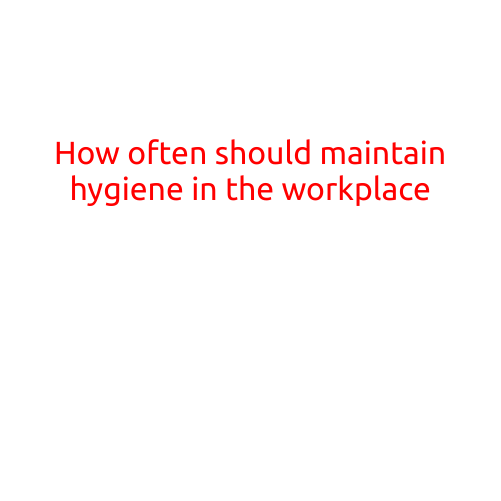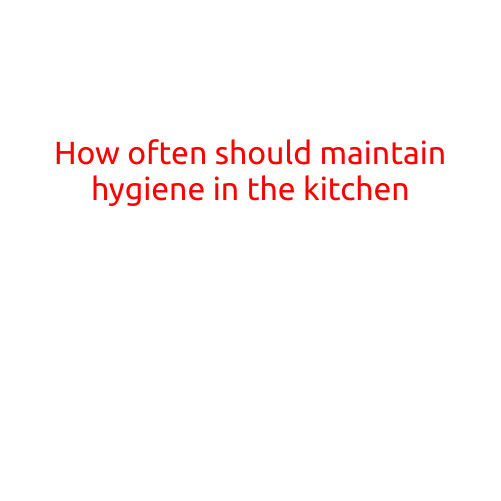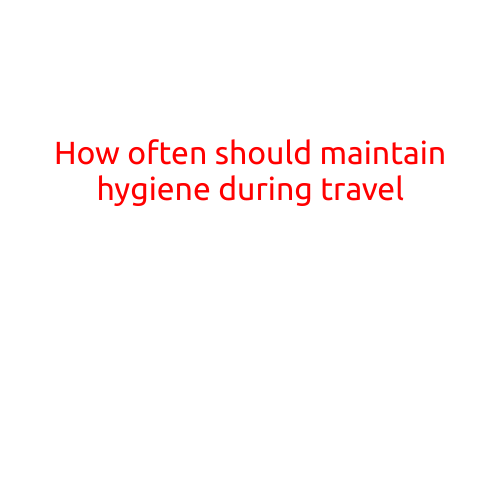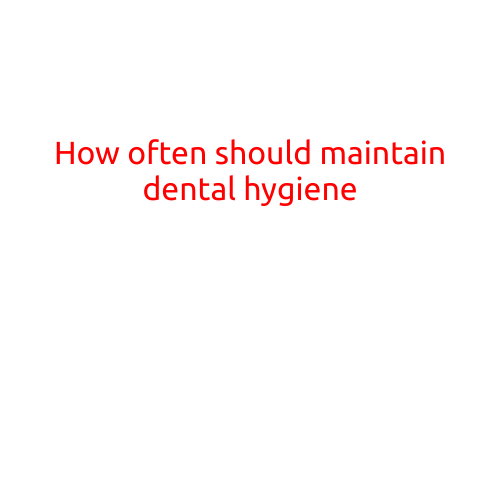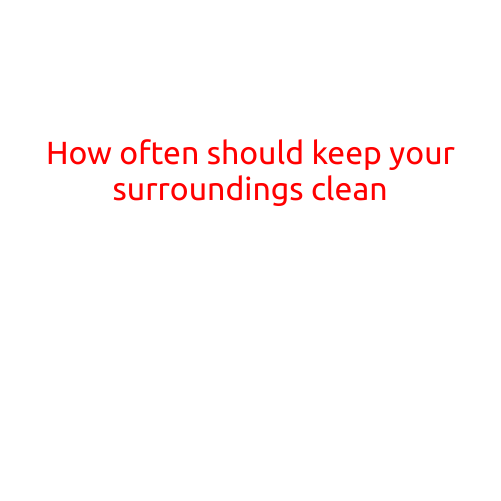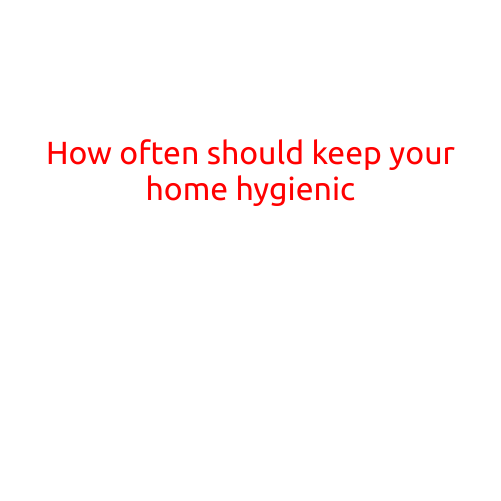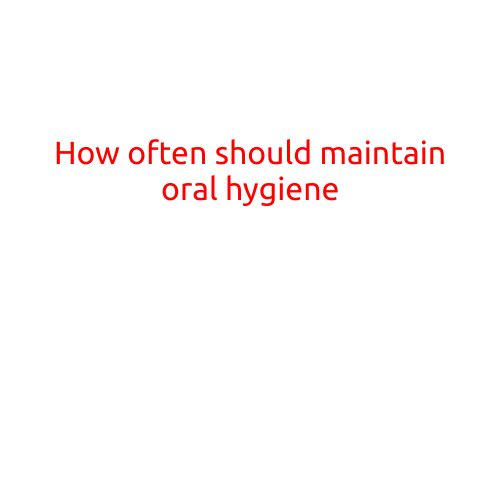
How Often Should You Maintain Oral Hygiene?
Oral hygiene is an essential part of our daily routine to maintain good overall health. Brushing and flossing regularly can help prevent tooth decay, gum disease, and bad breath. But how often should you maintain oral hygiene? In this article, we’ll explore the recommended frequencies for different oral hygiene activities and provide tips on how to make oral care a habit.
How Often Should You Brush Your Teeth?
The American Dental Association (ADA) recommends brushing your teeth at least twice a day, in the morning and before going to bed. However, brushing after every meal is ideal, especially if you’re consuming sugary or acidic foods and drinks. Brushing removes plaque, a sticky film of bacteria, which can cause cavities and gum disease.
How Long Should You Brush Your Teeth?
When brushing your teeth, make sure to brush for at least 2 minutes, paying attention to all surfaces of your teeth, including the front, back, and top. Use a fluoride toothpaste and a soft-bristled toothbrush to clean your teeth effectively.
How Often Should You Floss?
Flossing is an essential part of oral hygiene, as it removes food particles and plaque from between your teeth and under your gumline. The ADA recommends flossing at least once a day, preferably before brushing your teeth. You can floss as often as you like, but daily flossing is recommended to maintain good oral health.
How Often Should You Rinse with Mouthwash?
Mouthwash can help kill bacteria and freshen your breath. While it’s not a replacement for brushing and flossing, using mouthwash once a day can complement your oral care routine. Look for mouthwash that contains fluoride and antibacterial agents to help strengthen your teeth and gums.
Additional Oral Hygiene Tips
In addition to brushing, flossing, and rinsing with mouthwash, here are some additional oral hygiene tips to maintain good oral health:
- Avoid sugary and acidic foods and drinks, which can contribute to tooth decay and erosion.
- Visit your dentist regularly for check-ups and cleanings to prevent oral health problems.
- Use a straw when drinking acidic beverages to minimize contact between the drink and your teeth.
- Chew sugar-free gum after meals to stimulate saliva production, which can help neutralize acids and remineralize your teeth.
- Avoid cigarette smoking and using tobacco products, which can increase your risk of oral health problems.
Conclusion
Maintaining good oral hygiene is essential for preventing oral health problems and ensuring good overall health. Brushing, flossing, and rinsing with mouthwash are crucial activities that should be part of your daily routine. Remember to visit your dentist regularly and follow the additional oral hygiene tips provided above to maintain a healthy and happy smile.
Recommendations for Frequently Asked Questions
- How often should I brush my teeth if I have children?
- Brush your teeth at least twice a day, and encourage your children to do the same.
- How often should I floss if I have orthodontic appliances?
- Floss at least once a day, and use an interdental cleaner to remove food particles from around your brackets and wires.
- How often should I rinse with mouthwash if I have sensitive teeth?
- Rinse with mouthwash once a day, and use a mouthwash that is designed for sensitive teeth.
